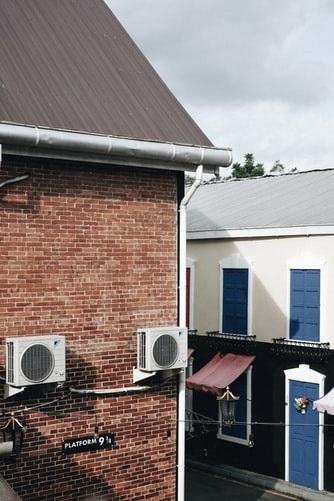When warm weather hits in Georgia, your air conditioning system is a pretty critical piece of equipment. It’s easy to become complacent when all is running well! However, it’s very important to be mindful and proactive of preventative maintenance in order to avoid costly repairs and inconveniences. We’ve identified six of the most common causes your HVAC system may hit a bump!
1. Thermostat Problems
A thermostat is a very vital component of your controlled temperature system! A leading cause for air conditioners to experience operating problems are miscalibrations, loss of wire connections, or incorrect positioning of the thermostat. These can definitely be an issue for homeowners that have older, manual units. Older thermostats aren’t nearly as accurate as the newer models, and they will lose even more accuracy over time. If your thermostat is newer, it could just be that the settings are off.
2. Dirty Condenser Coils
Condenser coils are an important part of your air conditioners cooling system. Because they are located outdoors, they are exposed to dirt, debris, and other elements from the environment. It’s very important to inspect the area around your outside unit to make sure that it is clear of debris, leaves, and vegetation. Make sure the area is clear by keeping bushes and plants at least 2 feet away.
Dirty condenser coils will affect your HVAC’s ability to cool your home because the build-up of dirt on the condenser coils will prevent heat from transferring from the coils to the air outside. This means the heat inside your home will not be adequately removed. Dirty condenser coils can affect your HVAC’s cooling efficiency by more than 30%! Surprisingly it doesn’t take much dirt to reduce the effectiveness of your air conditioner.
3. Low Refrigerant
Another important factor to consider when your air conditioner is not cooling properly is it may be low on refrigerant. Unlike an automobile, your AC won’t “use up” its refrigerant. The refrigerant remains at the same level in an air conditioner as it moves between liquid and gaseous states. When refrigeration levels are low, this is most likely an indication of a leak which can cause severe damage to your system. Unfortunately, this type of repair is more complicated than simply refilling the lost refrigerant. It’s very important to identify the source of the leak and repair it correctly.
4. Fan Issues
Your air conditioner houses a fan inside which blows indoor air over the unit’s evaporator coil. Another fan expels heat from inside to the outside of the house through the outdoor unit’s condenser. Both fans have an equal part in cooling your home. If you notice the fan motor is running too loudly, not circulating air, or shuts off during operation...this can be a sign that the fan needs to be inspected. Ignoring these issues can result in expensive repairs and complete compressor failure.
5. Leaking Ducts
Your HVAC system pulls in air from its surroundings and cools or heats it, depending on how you’ve programmed your thermostat. The air is carried throughout your home by air ducts, which run through your walls, ceiling, or floor (depending on your home). These are an essential part of your HVAC system. Any break or hole in these ducts can leak this conditioned air out of your ducts. It won’t matter how energy efficient your air conditioner is if your air ducts don’t properly transport the conditioned air. When air is lost through leaks, your HVAC system works harder to keep your home at the proper temperature. This results in higher energy consumption and utility bills!
6. Dirty Air Filter
A simple, yet common reason for air conditioner repairs is a dirty filter. Unfortunately, many homeowners don’t take the time to do this essential task. A dirty air filter requires your system to work unnecessarily harder which then becomes prone to breakdowns.
The best thing a homeowner can do to prevent inconvenient and potentially costly repairs is to stay current with your HVAC preventative maintenance plan. Seasonal Tune-Ups will prolong equipment life, reduce repairs, meet warranty requirements, and give you and your family peace of mind to keep you safe and comfortable in your Georgia home!












No Comments